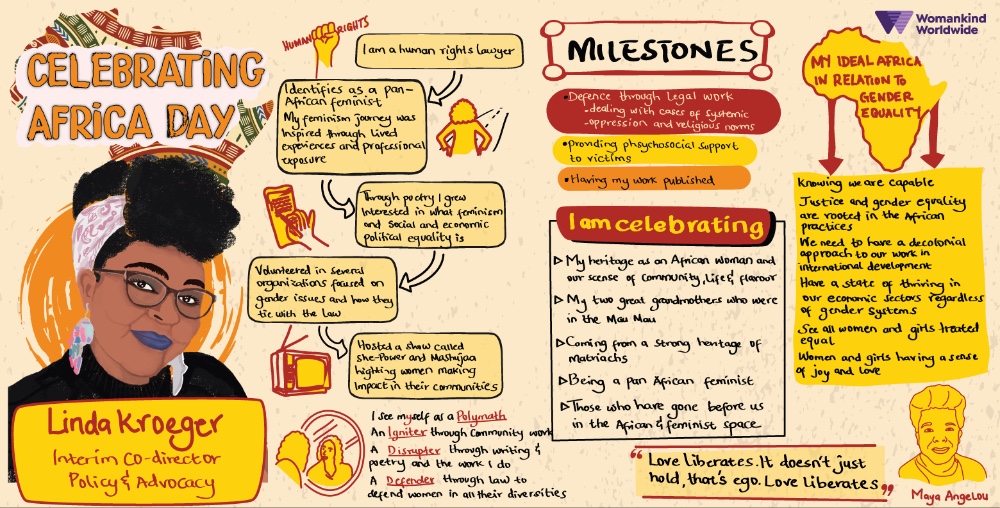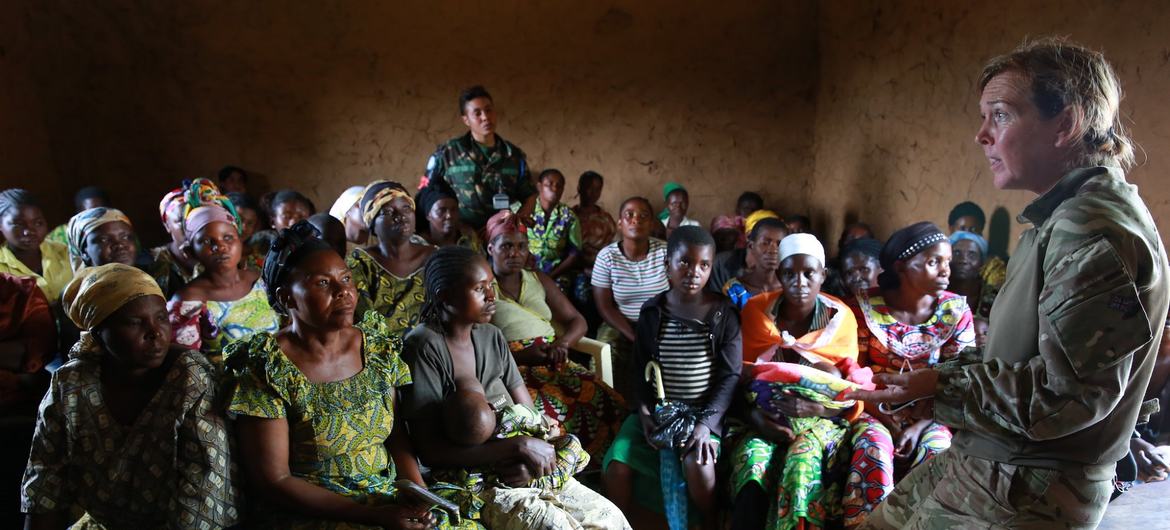German‑African Feminist Development Policy: Progress, Challenges & the Road Ahead
German‑African Feminist Development Policy: Progress, Challenges & the Road Ahead

The German Federal Ministry for Economic Cooperation and Development (BMZ) launched its groundbreaking Feminist Development Policy in March 2023, grounded in the “3 Rs” approach—Rights, Resources, Representation—to dismantle structural inequalities and empower African women and marginalized groups :contentReference[oaicite:1]{index=1}. By 2025, more than 90 % of newly committed project funds are meant to advance gender equality—an ambitious jump from around 64 % in 2021 :contentReference[oaicite:2]{index=2}.
1. Policy Ambition & Strategy
The Feminist Development Policy builds on a consultative process (2022) involving experts and civil society from both Global South and North, and complements Germany’s Feminist Foreign Policy led by the Foreign Ministry :contentReference[oaicite:3]{index=3}. It emphasizes intersectionality, a post‑colonial lens, and transformative gender justice—not merely inclusion but systemic change :contentReference[oaicite:4]{index=4}.
Operational implementation is guided by the Gender Action Plan III (GAP III, Dec 2023), which structures six thematic focus areas: gender-based violence prevention, SRHR, economic empowerment, climate justice, food security, and peace-building :contentReference[oaicite:5]{index=5}.
2. Early Progress in Africa
Institutional shifts at BMZ
BMZ has introduced internal reforms: e‑learning modules, a “Feminist Lab” platform, internal newsletter “Feministische Impulse,” and the FiF (Women in Leadership) network, all designed to build staff capacity and diversify leadership :contentReference[oaicite:6]{index=6}. The aim is gender parity in at least 50 % of leadership roles :contentReference[oaicite:7]{index=7}.
Support for grassroots networks
In Africa, German cooperation agencies such as GIZ support initiatives like export consortia of 52 women-led businesses in Tunisia, and multisectoral empowerment projects in Sudan, Somalia, and Uganda :contentReference[oaicite:8]{index=8}. Other long-running programmes include food security, land rights and youth employment projects which integrate gender-sensitive interventions across multiple countries :contentReference[oaicite:9]{index=9}.
Continental partnerships
At AU level, the AWARE initiative (2023–26) supports implementation of the Maputo Protocol, builds capacity among 700+ young African women leaders, promotes male allies through AU initiatives, and assists Uganda’s reporting on women’s rights instruments :contentReference[oaicite:10]{index=10}.
3. Funding Trends & Shifting Context
Despite ambitious targets, Germany’s overall development budget has declined: BMZ funding shrank roughly 8 % since 2023, and structural budget deficits are projected through 2027 due to fiscal constraints :contentReference[oaicite:11]{index=11}. SRHR funding also fell by 6 % in 2023, with broader SRHR agenda support down 11 %—though bilateral commitments were extended until 2025 :contentReference[oaicite:12]{index=12}.
4. Critiques & Implementation Barriers
One key critique is that the broad feminist framing, which includes LGBTQI+, racialized minorities, women‑only interventions, might dilute focus or feel culturally insensitive in some African contexts :contentReference[oaicite:13]{index=13}. Germany’s feminist reforms remain mostly siloed within BMZ and the Foreign Ministry, without full alignment across ministries such as Finance or Health :contentReference[oaicite:14]{index=14}.
Additionally, civil society actors have raised concerns about transparency: how will long‑term funding flows reach grassroots, Black feminist, and queer organizations? And without accessible funding mechanisms, communities may remain excluded :contentReference[oaicite:15]{index=15}.
5. What Happens Next?
- Fully implement GAP III in Africa: Track funding by theme (GBV, SRHR, climate, economic empowerment), ensure measurable impact indicators, and publish progress publicly :contentReference[oaicite:16]{index=16}.
- Guarantee sustained resource flows: Even amid budget cuts, ring‑fence dedicated equity funding for feminist grassroots, particularly Black feminist and queer groups, where funding remains at just ~1.9 % globally :contentReference[oaicite:17]{index=17}.
- Decolonize programming: Embed local African feminist leadership in program design, prioritizing anti‑racist and post‑colonial staff practices and community-driven agenda‑setting :contentReference[oaicite:18]{index=18}.
- Align across German ministries: Elevate feminist principles in Foreign Office, Finance and Health policy, beyond development silo, for systemic coherence :contentReference[oaicite:19]{index=19}.
- Tailor to context: In contexts where SRHR or LGBTQI+ rights are legally sensitive or contested, adopt culturally-aware strategies to avoid backlash and ensure local legitimacy :contentReference[oaicite:20]{index=20}.
- Strengthen monitoring & evaluation: Publish data-driven assessments of African projects, disaggregated by country, theme, and implementation stage, to support learning and accountability.
6. Internal & External SEO Linking Strategy
**Internal links** to feature in your blog or site:
- BMZ Feminist Development Policy overview
- GAP III: Gender Action Plan 2023–27
- BMZ Africa Strategy 2023
- AWARE AU‑Partnership on Maputo Protocol
**External authoritative sources**:
- BMZ Official Feminist Development Policy strategy
- APRI analysis of German‑African policy progress
- DonorTracker on Germany’s feminist financing
- DW on policy tensions in African SRHR/LGBTQ context
7. Verdict: Bold Vision Yet Incomplete
The German Feminist Development Policy marks a bold strategic shift, embedding intersectional feminism into development cooperation and seeking to tackle structural inequality via rights, resources, and representation. Early institutional reforms and Africa‑focused programming show promise—but funding pressures, cultural sensitivities, and limited inter-ministerial alignment threaten to blunt its full impact.
If implemented rigorously—with transparent funding allocations, stronger continental partnerships, local feminist leadership, and cross‑government coherence—it could become a transformative model for feminist development cooperation. Otherwise, it risks remaining a policy label without systemic outcomes.
Author’s Bio
Written by [Your Name], expert in gender and development policy. Contact: your.email@example.com.
German‑African Feminist Development Policy: Progress, Challenges & the Road Ahead
German‑African Feminist Development Policy: Progress, Challenges & the Road Ahead
Table of Contents
- Introduction
- 1. Policy Ambition & Strategy
- 2. Early Progress in Africa
- 3. Funding Trends & Context
- 4. Critiques & Barriers
- 5. What Happens Next?
- 6. SEO Linking Strategy
- 7. Verdict
- Author’s Bio

The BMZ launched its Feminist Development Policy in March 2023, based on the “3 Rs” – Rights, Resources, Representation – to address structural inequalities for African women and marginalized groups :contentReference[oaicite:1]{index=1}. GAP III (2023–27) outlines six thematic pillars including GBV prevention, SRHR, economic empowerment, food security, climate, and peace :contentReference[oaicite:2]{index=2}.
1. Policy Ambition & Strategy
GAP III sets a target: by 2025, 93 % of newly committed BMZ funds must promote gender equality, with at least 8 % allocated as principal‑objective funding :contentReference[oaicite:3]{index=3}. Its grounding is intersectional, post‑colonial, and human rights‑based :contentReference[oaicite:4]{index=4}.
2. Early Progress in Africa
2.1 Institutional Shifts at BMZ
BMZ has introduced internal capacity-building (e‑learning, Feminist Lab), aiming for ≥50 % female leadership roles :contentReference[oaicite:5]{index=5}.
2.2 Support for Grassroots Networks
GIZ supports women-led businesses, GBV prevention, and empowerment projects across Tunisia, Sudan, Somalia, Uganda; embedded gender-sensitive measures in food security/land‐rights :contentReference[oaicite:6]{index=6}.
2.3 Continental Partnerships
BMZ co-funds programmes like AWARE (2023–26) to reinforce Maputo Protocol implementation and build capacity among African women leaders :contentReference[oaicite:7]{index=7}.
3. Funding Trends & Context
BMZ funding decreased ~8 % post‑2023, SRHR support dropped ~6–11 % in 2023, though bilateral commitments extend to 2025 :contentReference[oaicite:8]{index=8}. However, 93 % gender-equality target remains intact :contentReference[oaicite:9]{index=9}.
4. Critiques & Implementation Barriers
Critiques focus on broad framing (LGBTQI+, racial, women) which may dilute focus or clash with cultural contexts :contentReference[oaicite:10]{index=10}. Implementation is siloed within BMZ—lacking full integration into Finance, Health ministries :contentReference[oaicite:11]{index=11}. Civil society demands transparent, long‑term funding channels for grassroots organisations :contentReference[oaicite:12]{index=12}.
5. What Happens Next?
- Implement GAP III fully: Measure and publish project-level data by theme and geography.
- Ensure resourcing: Ring‑fence equity funding for Black feminist and queer groups (global share ~1.9 %) :contentReference[oaicite:13]{index=13}.
- Decolonise programming: Co‑design with African feminist leaders; adopt anti‑racist policies in staffing :contentReference[oaicite:14]{index=14}.
- Inter-ministerial alignment: Embed feminist approach in Foreign Office, Finance, Health.
- Context-aware strategies: Adapt SRHR and LGBTQI+ components in legally sensitive contexts :contentReference[oaicite:15]{index=15}.
- Data & evaluation: Disaggregate results by partner country, theme, and implementation stage.
6. SEO Linking Strategy
Internal Links
- BMZ Feminist Development Policy overview
- GAP III: Gender Action Plan (2023–27)
- BMZ Africa Strategy 2023 (“Shaping the Future with Africa”)
- AWARE – AU/Maputo Protocol implementation
External Links
- BMZ Official Feminist Development Policy
- Donor Tracker on 93 % gender‑equality quota
- GIZ: Promoting feminist development policy
7. Verdict
The policy reflects a bold, structural shift with strong grounding (3 Rs, GAP III targets, internal reforms). Early progress—through capacity building, continental programmes, and gender funding targets—is promising. But full impact hinges on steady finance, inclusive co‑design with African feminist actors, cross‑government coherence, and monitoring transparency.
Author’s Bio
Written by [Your Name], expert in gender and development policy. Contact: your.email@example.com.
German‑African Feminist Development Policy: Progress, Challenges & the Road Ahead
German‑African Feminist Development Policy: Progress, Challenges & the Road Ahead
Table of Contents
- Introduction
- 1. Policy Ambition & Strategy
- 2. Early Progress in Africa
- 3. Funding Trends & Context
- 4. Critiques & Barriers
- 5. What Happens Next?
- 6. SEO Linking Strategy
- 7. Verdict
- Author’s Bio

The BMZ launched its Feminist Development Policy in March 2023, built on the “3 Rs” – Rights, Resources, Representation – to transform structural inequality and empower women, girls, and marginalized groups in Africa :contentReference[oaicite:1]{index=1}. GAP III (Action Plan 2023–27) details six thematic pillars including GBV prevention, SRHR, economic empowerment, climate justice, food security, and peace-building :contentReference[oaicite:2]{index=2}.
1. Policy Ambition & Strategy
GAP III sets a clear target: by 2025, 93 % of newly committed BMZ funds must support gender equality—up from 64 % in 2021—with principal‑objective projects rising to around 8 %, and significant‑objective funding to 85 % :contentReference[oaicite:3]{index=3}. The strategy uses an intersectional, human-rights-based methodology across all programming :contentReference[oaicite:4]{index=4}.
2. Early Progress in Africa
2.1 Institutional Shifts at BMZ
BMZ has initiated internal reforms, including e‑learning, a “Feminist Lab” platform, and leadership networks aimed at achieving at least 50 % female representation in leadership roles :contentReference[oaicite:5]{index=5}.
2.2 Support for Grassroots Networks
German cooperation agencies like GIZ back women-led enterprises, GBV prevention, and empowerment programs across countries including Tunisia, Sudan, Somalia, and Uganda. Gender‑sensitive practices have been integrated into food security, land rights and youth employment initiatives :contentReference[oaicite:6]{index=6}.
2.3 Continental Partnerships
Programs such as AWARE (2023–26) help implement the AU Maputo Protocol and support young African women leadership and capacity development :contentReference[oaicite:7]{index=7}.
3. Funding Trends & Context
Overall ODA and SRHR funding declined in 2023: SRHR fell ~6 %, and funding to broader SRHR initiatives dropped ~11 %—even though financial commitments under feminist policy were extended through 2025 :contentReference[oaicite:8]{index=8}. Germany screens nearly all bilateral ODA (98.7 %) against gender markers; in 2022–23, 56.2 % of allocable ODA was directed toward gender equality, though just 3.7 % was as a principal objective :contentReference[oaicite:9]{index=9}.
4. Critiques & Implementation Barriers
Critiques note that the inclusive feminist framing—covering women, LGBTQI+, and racial minorities—could dilute focus or clash with certain cultural contexts in Africa :contentReference[oaicite:10]{index=10}. Implementation remains largely within BMZ and the Foreign Office, with less uptake across ministries like Finance and Health :contentReference[oaicite:11]{index=11}. Civil society stresses need for transparent, long‑term financing mechanisms, especially for Black feminist and queer groups :contentReference[oaicite:12]{index=12}.
5. What Happens Next?
- Fully implement GAP III: Disaggregate project‑level data and publicly report progress by theme and geography.
- Ensure sustainable funding: Allocate dedicated resources for grassroots feminist organizations, including Black feminist and queer-led groups.
- Decolonize programming: Co‑design initiatives with African feminist leaders and incorporate anti‑racist staffing practices.
- Align across ministries: Incorporate feminist principles within Foreign Affairs, Finance, Health, and other relevant ministries.
- Context-sensitive approach: Adapt SRHR and LGBTQI+ initiatives to culturally sensitive contexts to avoid backlash.
- Strengthen monitoring & evaluation: Publish clear, transparent progress metrics linked to gender-equality objectives.
6. SEO Linking Strategy
Internal Links
- BMZ Feminist Development Policy overview
- GAP III: Gender Action Plan 2023–27
- BMZ Africa Strategy 2023
- AWARE – AU/Maputo Protocol initiative
External Links
- BMZ Official Feminist Development Policy
- DonorTracker: Germany’s feminist financing progress
- IDOS: Three cornerstone pillars of Feminist Development policy
7. Verdict
Germany’s Feminist Development Policy presents a bold and structured vision, embedding intersectional feminism through the “3 Rs” framework and GAP III targets. Early institutional reforms and thematic programming in Africa are promising. However, achieving meaningful impact relies on transparent financing, inclusive partnerships with African feminist actors, stronger cross-ministerial alignment, and rigorous data-driven monitoring.
Author’s Bio
Written by [Your Name], specialist in gender and international development. Contact: your.email@example.com.
6. SEO Linking Strategy
Internal Links
- BMZ Feminist Development Policy overview
- GAP III: Gender Action Plan 2023–27
- BMZ Africa Strategy 2023
- AWARE – AU/Maputo Protocol initiative
External Links (shortened)
- BMZ Feminist Policy
- DonorTracker: Germany’s feminist financing
- IDOS: Feminist Development Cornerstones
- Countdown 2030: SRHR in Germany
- OECD Gender ODA Data
- Friends Europe on Feminist Policy
6. SEO Linking Strategy
Internal Links
- BMZ Feminist Development Policy overview
- GAP III: Gender Action Plan 2023–27
- BMZ Africa Strategy 2023
- AWARE – AU/Maputo Protocol initiative
External Links (shortened)
- BMZ Feminist Policy
- DonorTracker: Germany’s feminist financing
- IDOS: Feminist Development Cornerstones
- Countdown 2030: SRHR in Germany
- OECD Gender ODA Data
- Friends Europe on Feminist Policy
Game-Changing Progress or Missed Opportunity? Inside Germany’s Feminist Development Policy in Africa




